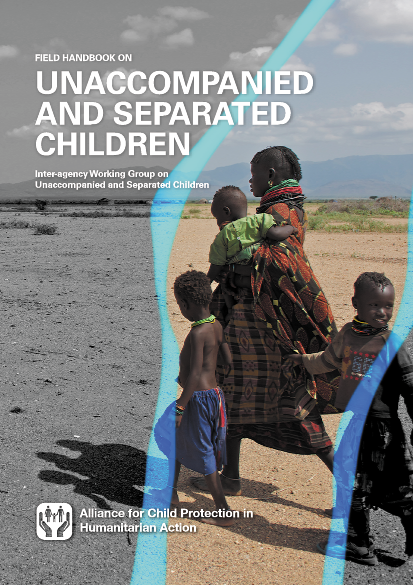
The Inter-agency Guiding Principles on Unaccompanied and Separated Children established the core principles for working with such children and were unique when they were developed in 2004. Indeed, they were endorsed by many agencies and routinely referred to by governments, lawmakers and practitioners. However, more recent emergencies, such as the 2010 Haiti earthquake, the 2013 Typhoon Haiyan in the Philippines and recent conflicts in the Syrian Arab Republic and South Sudan, highlighted the need for further technical guidance to support the implementation of these principles and to strengthen capacity building in programming for UASC. This field handbook and accompanying training materials have been developed by the Inter-agency Working Group on Unaccompanied and Separated Children (IAWG-UASC) to meet the demand for comprehensive, practical guidance on working with some of the most vulnerable children affected by emergencies.
The handbook elaborates on and serves as a complement to the guiding principles, which are still valid and applicable. It is also compatible with current inter-agency normative tools and draws on recent guidance, in particular the Minimum Standards for Child Protection in Humanitarian Action; 1 the 2010 Guidelines for the Alternative Care of Children, endorsed by the United Nations, together with its accompanying implementation handbook;2 and the Alternative Care in Emergencies (ACE) Toolkit.